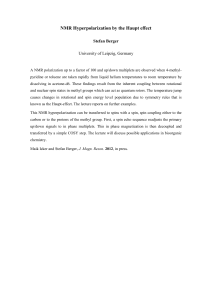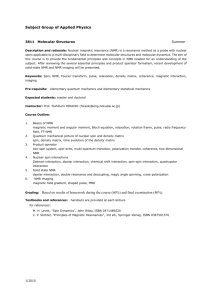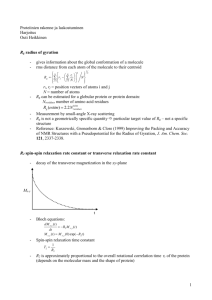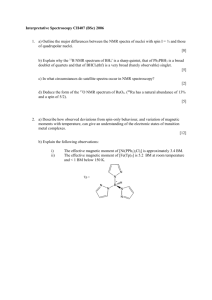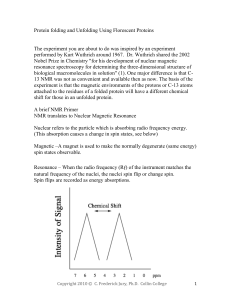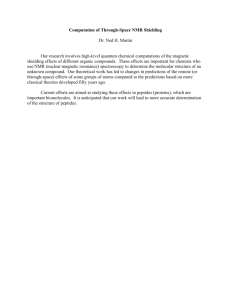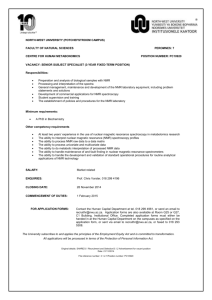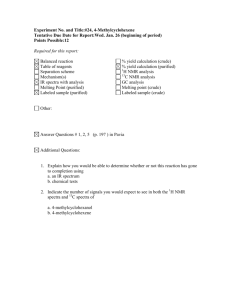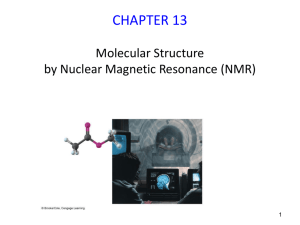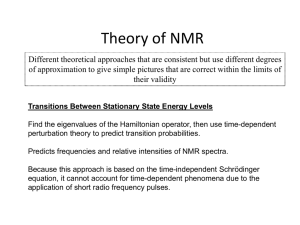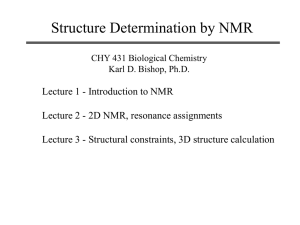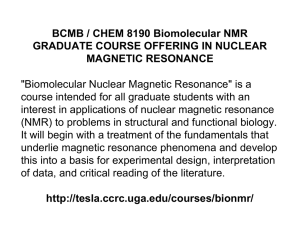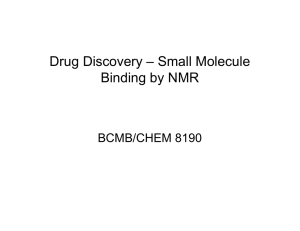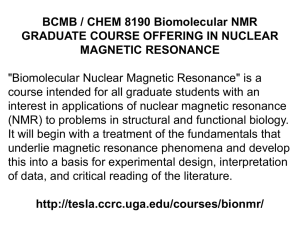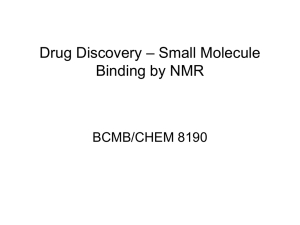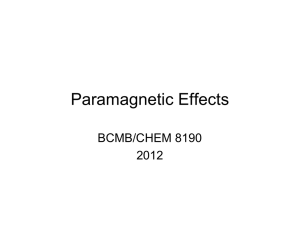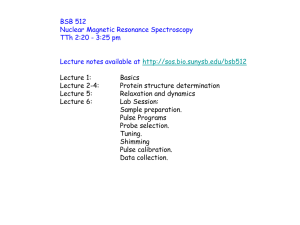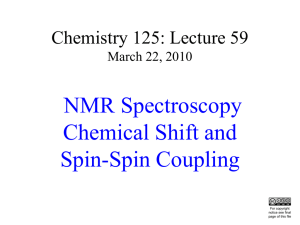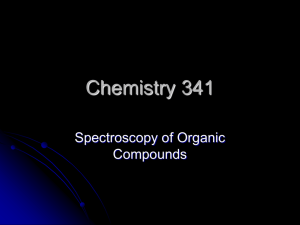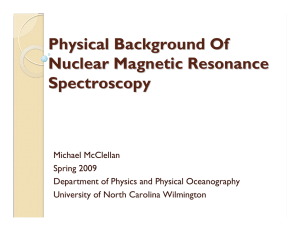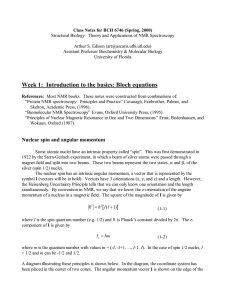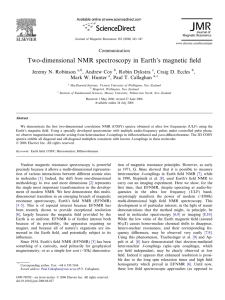Model Building and Refinement for CHEM 645 Spring 04
advertisement
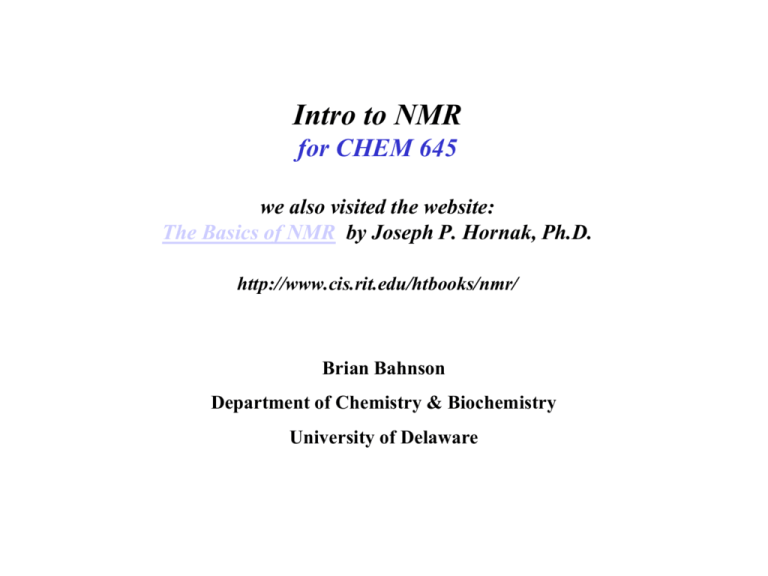
Intro to NMR for CHEM 645 we also visited the website: The Basics of NMR by Joseph P. Hornak, Ph.D. http://www.cis.rit.edu/htbooks/nmr/ Brian Bahnson Department of Chemistry & Biochemistry University of Delaware A Spinning Nucleus Gives a Magnetic Moment gyromagnetic ratio = unpaired electron spin Natural abundance + Spinning nucleus photo applied frequency magnetic field Unpaired Protons 99.98 Nuclei 1H 1 2H 1 31P 1 1 0.36 23Na 15N 0 13C 0 1.11 19F 1 Tesla Unpaired Neutrons Net Spin 0 1 0 2 1 1 0 1/2 1 1/2 3/2 1/2 1/2 1/2 42.6 6.5 17.3 11.3 4.3 10.7 40.1 (MHz/T) For I = ½ nuclei have two spin states M = -1/2 E=h Planck’s constant M = +1/2 The energy gap between states is small and corresponds to radio frequency waves The energy gap gives rise to a slight excess of the +1/2 state N E direction of applied static magnetic field + S Boltzmann Distribution Nupper-/Nlower+ = e-E/kT - DE = h -1/2 +1/2 The Net Magnetization Vector N S A 90º pulse places the net vector along the y-axis The spin-lattice relaxation time – T1 For a clearer description click: The Basics of NMR and follow the links – spin physics – T1 processes The return to equilibrium along the z-axis is the T1 The spin-spin relaxation time – T2 For a clearer description click: The Basics of NMR and follow the links – spin physics – T2 processes Following a 90º pulse The de-phasing of this precession is mediated by the spin-spin relaxation T2 What is actually measured in NMR experiment? But due to the T1 relaxation: FT Definition of Chemical Shift d = ( - REF) x106 / REF units of ppm Spin-Spin Coupling is Through Bonds a.k.a. scalar-coupling or J-coupling HA B0 +1/2 HB CA CB -1/2 CA CB +1/2 CA CB -1/2 Looking at only HA deshielded JA-B If HB not there shielded d (ppm) NOE Effects are Through Space C C NOE C C . f (tc) 1/r6 C C NOEs are highly distant dependent, seen from 2-5Å Correlation time is a combination of rotational motions, molecule size + shape dependent, and intramolecular motions A Protein’s 1H-NMR Spectra is Complex To assign peaks of proteins, this needs to be spread into a 2nd or 3rd dimension. 2-D and 3-D Separates Out Spectra Two Papers to Read for next Thursday’s Class Wuthrich, (1989) “Protein Structure Determination in Solution by Nuclear Magnetic Resonance Spectroscopy” Science 243, 45-50. Ikura et al., (1989) “A Novel Approach for Sequential Assignment of 1H 13C, and 15N Spectra of Larger Proteins: Heteronuclear TripleResonance Three-Dimensional NMR Spectroscopy. Application to Calmodulin” Biochemistry 29, 4659-4667.
